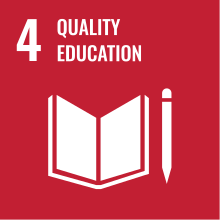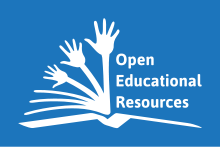Réseau @pprendre of French-speaking West Africa Wikimedians User Group/ig
Affiliate Applicant This group is currently in the process of applying to become a Wikimedia movement affiliate to the Affiliations Committee. To find the list of active Wikimedia affiliates, please visit the formal list of Wikimedia Movement Affiliates. |
Iji mezuo ebumnobi anyị, anyị na-emepụta ọrụ mmụta nkuzi, a ga-arụkwa ọrụ ndị a site na nkwado na nkwado. Ọ bụ ezie na otu a na-emeghe maka mmekorita ya na ndị mmekọ dị ugbu a, a na-emesi ya ike na mba ndị na-enweghị ndị mmekọ nọbu.
| Réseau @pprendre of French-speaking West Africa Wikimedians User Group | |
|---|---|
 | |
 West Africa | |
| Location | West Africa |
| Official language(s) | French language |
Réseau @pprendre of French-speaking West Africa Wikimedians User Group (En: Netwọk mmụta) bụ otu ndị ọrụ Wikimedia na usoro Wikimedia malitere nwere mmasị ịkwalite ọrụ Wikimedia na agụmakwụkwọ na mba ndị na-asụ French na West Africa site na. metụtara ụmụ akwụkwọ na ụmụ akwụkwọ si ụlọ akwụkwọ praịmarị, kọleji na mahadum.

Mission
Our mission is to foster a culture of knowledge sharing and digital literacy in French-speaking West African countries by actively involving pupils and students from primary schools, colleges, and universities in the Wikimedia projects. Our volunteers are dedicated to enhancing access to free, reliable, and locally relevant educational content from Wiki Projects while empowering the next generation with essential Wiki skills.
Vision
Our vision is a future where every pupil and student in French-speaking West African countries has the opportunity to become a knowledgeable contributor to the world's largest open educational resources in French through active participation in Wikimedia projects. We aspire to see young minds in French-speaking West African countries not only accessing but also enriching and localizing content on Wikimedia projects, thereby creating a dynamic ecosystem of shared knowledge that fuels innovation and progress across the region.
Values
- We believe in the power of the Wikimedia projects in education as a rich container of Open Educational Resources
- We believe in the importance of the involvement of students in enriching and localizing content
- We believe in the importance of Collaboration with local communities to promote educational projects.
Why?
Wikimedia projects are very important for education and while there are plenty of resources and initiatives in English and in many countries, there is a:
- lack of educational initiatives in French-speaking West African countries
- lack of localized content in French for French-speaking West African countries
- The importance of education as SDG. The Sustainable Development Goal (SDG) number 4 specifically focuses on education and aims to "ensure inclusive and equitable quality education and promote lifelong learning opportunities for all."

- The importance of having Open educational resources (OER) in French for the region. In November 2019, UNESCO adopted, during the 40th session of the General Conference, the Recommendation on OER, which aims to promote and facilitate access to high-quality, open, and free educational resources for education worldwide. This recommendation encourages UNESCO member states to support the development, adaptation, dissemination, and use of Open Educational Resources (OER) as a means to promote equitable access to quality education. It underscores the importance of openness and the free availability of educational resources to enhance access to education, improve the quality of teaching, and foster lifelong learning.

Approach
In countries with no affiliates
Our approach involves establishing volunteer communities in countries from the region lacking affiliates by following these steps:
- Collaborating with local partners in the targeted nations, such as local education-focused NGOs, libraries, universities, and schools.
- Initiating volunteer recruitment drives in collaboration with our local partners.
- Offering comprehensive online training sessions to volunteers, including trainer training on Wikimedia project editing, essential Wikimedia tools, and the requisite skills for organizing edit-a-thons. When feasible, in-person training sessions are also arranged.
- Launching edit-a-thons and contests in these countries, hosted by our local partners and led by trained volunteers.
- Providing ongoing online support and skill development opportunities for the trained volunteers.
In countries with existing affiliates
Our strategy doesn't involve circumventing the local affiliates; instead, it aims to offer them assistance, essential tools, and skills to guarantee the effective execution of projects
Logo

